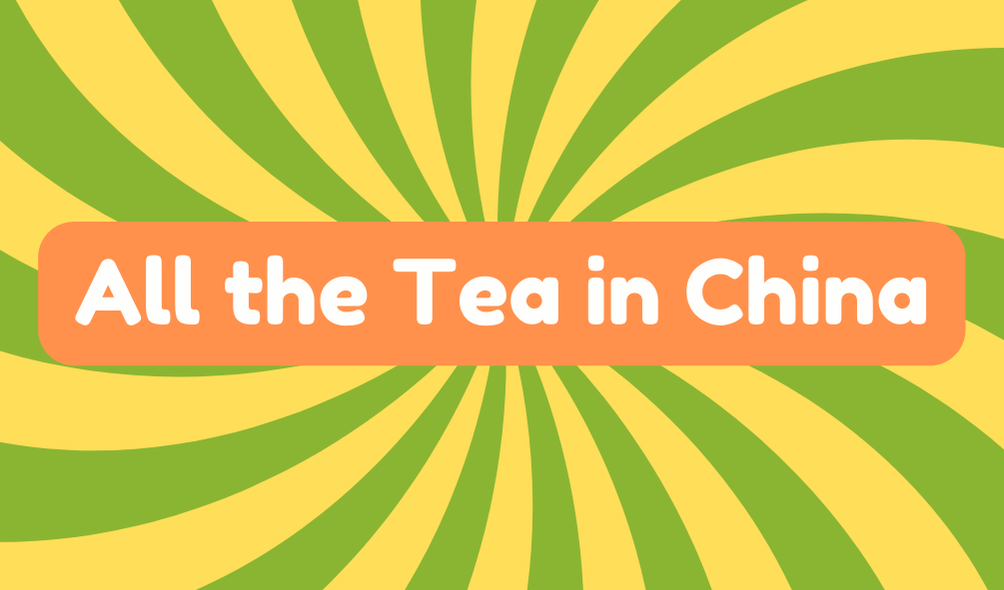The phrase "all the tea in China" symbolizes immeasurable value, often reflecting personal relationships and emotional ties. Originating in the late 19th century, it connects to tea's historical role as a valuable commodity. People use it to emphasize the worth of cherished things or individuals, suggesting that no amount of money could replace them. This expression remains relevant today, showcasing its adaptability in discussions about what truly matters. More intriguing insights await beyond this definition.
Synonyms
Synonyms for the phrase "all the tea in China" can enhance understanding of its meaning and application in various contexts.
Recognizing similar phrases and alternative expressions provides clarity to discussions about value and worth. This idiomatic expression highlights the greatness of what one holds dear, often compared to material possessions.
- Equivalent idioms include "at any cost"
- Other expressions are "for a mountain of gold"
- Comparisons can be drawn with "not trading for the world"
Awareness of these variations enriches conversations, prompting a deeper consideration of what is truly invaluable in life and relationships, beyond mere material wealth.
Example of Sentences
The phrase "all the tea in China" serves as a vivid expression of immeasurable worth, and it can be effectively illustrated with various examples in everyday language.
It highlights the cultural significance of tea and serves as a powerful idiomatic expression. In conversations, one might say:
- "I'd never trade my loyal friends for all the tea in China."
- "She wouldn't consider the job offer, even for all the tea in China."
- "His commitment to his passions surpasses all the tea in China."
These examples reveal how the phrase conveys deep value, challenging perceptions of worth in human relationships and experiences.
Origin
The phrase "all the tea in China" has intriguing origins that merit exploration. First appearing in Australian publications during the late 19th or early 20th century, it underscores China's position as the primary tea producer. This expression not only reflects the cultural significance of tea but also suggests a fascinating linguistic evolution, mirroring how language adapts to societal values.
| Origin Aspect | Description |
|---|---|
| First Recorded | Late 19th – early 20th century |
| Cultural Context | China's leading role in global tea production |
| Linguistic Evolution | Shift from literal to metaphoric expression |
Collocations
Collocations related to the phrase "all the tea in China" reveal the deeper cultural and emotional connections woven into everyday language. This idiom not only demonstrates value but also highlights the nuances of expressing longing or attachment.
The use of tea idioms enriches conversations, offering insights into human experience.
- "Not for all the tea in China"
- "More precious than all the tea in China"
- "Trading for tea"
Such collocations may seem trivial, yet they reflect a complex blend of tradition, sentiment, and social commentary.
They serve as linguistic anchors, enhancing the importance of meaningful connections.
How to Use in Everyday Language
Using phrases like "all the tea in China" in everyday conversation can enrich language and convey deep feelings about what truly matters. Such figurative language enhances communication, allowing individuals to express complex ideas succinctly.
For instance, comparing a cherished friend to all the tea in China emphasizes their value in a relatable manner. However, users must be cautious; overusing everyday phrases may dilute their impact.
To maintain the phrase's emotional weight, it should be reserved for moments of genuine significance. Ultimately, integrating such expressions can transform mundane dialogue into engaging exchanges, fostering a connection through shared understanding of inherent worth.
Why Is It Still Relevant Today?
In contemporary discussions, the phrase "all the tea in China" remains relevant due to its ability to encapsulate profound feelings about value and worth. It not only relates to material possessions but also reflects deep emotional connections in relationships.
| Aspect | Traditional Meaning | Modern Interpretation |
|---|---|---|
| Cultural Significance | Symbol of immeasurable value | Represents emotional depth in choices |
| Usage Context | Comparisons of worth | Personal sacrifices for love or meaning |
| Relevance Today | Illustrates historical trade value | Highlights contemporary priorities |
This evolution showcases its adaptability and ongoing cultural significance in a rapidly changing world.
Closing Thoughts
In the garden of language, "all the tea in China" stands as a rare flower, symbolizing human relationships and their ineffable worth. Yet, as society continues to thrive on material goods, one must question whether the essence of this expression can withstand the tides of time. Like a cherished heirloom, its value remains, but risks fading if overlooked. Consequently, it serves as a challenge to recognize and cherish what truly matters, ensuring that such priceless sentiments are not lost in the chaos of modern life.







